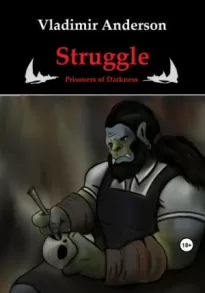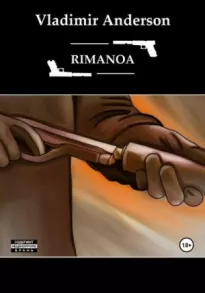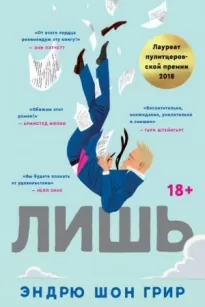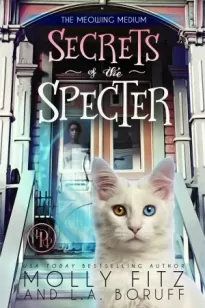The Librarian
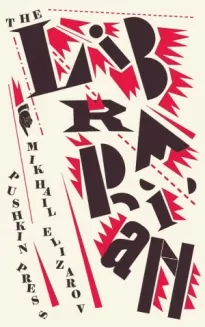
- Автор: Михаил Елизаров
- Жанр: Современная проза / Социальная фантастика
- Дата выхода: 2015
Читать книгу "The Librarian"
SCREWED
THE DAY S PASSED anxiously and uneasily. Although we put a brave face on things, we were in a despondent mood. Things were only going from bad to worse, as if after Ogloblin’s death the entire Shironin reading room had been buried under his iron cross.
Of course, everyone understood why the council had taken such severe measures against us. Not only did they know about Burkin’s secret assistance, but they had also foreseen his noble and imprudent act, and then exploited it to the maximum. Burkin had damaged himself, and we had been placed under lock and key out of considerations of higher security.
No one talked about our quarantine. On the contrary, we tried to imagine that our imprisonment was a holiday at a country dacha.
The Vozglyakovs’ little farmstead lay two kilometres from the nearest village. It was surrounded on all side by a silence that was only stitched along the edge by the clattering of district suburban trains.
The small house proved to be a hospitable refuge. The sisters, Margarita Tikhonovna and Tanya occupied two rooms. Anna whispered furtively to me that she would give Tanya and me a separate little room under the roof, but, to be honest, I found the idea of such open cohabitation embarrassing—it looked too provocative. We gave the little room to Vyrin—it had a hard trestle bed that was perfect for his injured back. We put a couch in the inner porch, where Timofei Stepanovich took up residence; just enough space was left for a camp bed as well, and Marat Andreyevich slept on that.
Kruchina, Ievlev and Sukharev slept in the bathroom, and Lutsis and I spent the night in the hayloft. Anna gave us quilted jackets and the late Maria Antonovna’s thick woollen coat—the nights were already cold.
The Vozglyakovs’ property was dilapidated and in need of repair, so there was plenty of work for everyone. We strengthened the posts of the lean-to shed for the motorbike, reset the corrugated asbestos on the roof, mended the porch, painted the shutters, straightened up the fence and replaced the rotten shelves in the bathroom with new ones. At one time the Vozglyakovs had kept two cows, but after Maria Antonovna’s death the cattle were sold. The only animals apart from dogs were undemanding chickens. We transformed the former cowshed into a woodshed, and in a couple of days Ievlev and Lutsis had crammed it with firewood right up to the roof. Tanya and the sisters whitewashed the cellar and Margarita Tikhonovna boiled up plum jam in a large copper basin.
By the end of a week everything in the house had been transformed and we had only leisure time left. In the evening the reading room divided up into groups according to interests. Timofei Stepanovich ceremoniously pulled tiny barrels out of a canvas bag, calling out the numbers in a ringing voice, and Margarita Tikhonovna, Anna, Svetlana and Veronika covered the matching numbers on lotto cards with buttons. The atmosphere at their table was impeccably childish.
Grisha tipped a chess set with some pieces missing out of its folding board, made draughts out of tar and white bread and played passionate sessions of Russian giveaway with Sukharev. A short distance away Dezhnev, Ievlev and Lutsis were totally absorbed in a game of preference.
Tanya and I, left alone together, played badminton in the garden. The shuttlecock, which looked like dead sparrow, made a special effort to get stuck in the knotty branches of the contorted apple trees all the time. I stirred the dense foliage with a ski pole, the shuttlecock fell down, and down with it fell an unripe winter apple.
It all came to an end in a single instant, rapidly and almost painlessly, like a bone crunching under local anaesthetic. It was the second week of our confinement; lulled into a false sense of security by the steady-paced country life, we now thought that everything would blow over.
On Friday morning a cavalcade of four cars drove up to the farm. Before the booming iron of the gates had even started rumbling to the blow of a fist, the Moscow watchdog Nayda broke into cacophonous, ragged barking and started circling round her kennel, jangling her long chain. Ogloblin’s Latka joined in, twisting her vulpine warbling up into the sky like a corkscrew. And it was only then that the gates pealed like thunder.
We weren’t expecting anyone. Somehow we’d forgotten the reason that had brought us all together in the Vozglyakovs’ house. I hid the case with the Book under a floorboard, took out my hammer and ran to the gates. Lutsis, Sukharev, Kruchina and Dezhnev had already gathered there.
The formidable Ievlev, holding a cleaving axe out in front of him, asked:
“Who the hell is this?”
“Friends, friends,” a familiar voice replied. “Open up!”
We drew back the bolt. Standing there in front of us was Yambykh, with two of his staff behind him, as alike as two cobblestones. A little farther away, craning his neck and smiling tensely, was Tereshnikov, looking like a goose in a white cloth cap with a plastic peak and the faded inscription “Theodosia”. I also thought I recognized the passenger loitering beside a car, despite the cumbersome glasses with smoky lenses that covered half his face.
“Vadim Leonidovich!” Tereshnikov called. “Come here, don’t be afraid. We won’t let anyone hurt you.”
And then I remembered—it was Kolesov, the false apartment buyer from the Gorelov reading room.
“May I?” Yambykh asked drily and walked in without waiting for permission. “I hope the dogs are leashed?”
He was followed in by a small retinue of men, who squinted warily at our axes. About ten guards remained outside by the cars.
Tereshnikov turned back casually and shouted to them.
“Wait, we’ll be back soon! And don’t do anything stupid; we’re not in any danger.”
After that he anxiously assessed the effect his words had had on the Shironinites.
“Genuine cut-throats,” he mumbled, jabbing his thumb back over his shoulder. “Maniacs. They don’t even need a Book of Fury…” he muttered, nudging along Kolesov, who moved awkwardly, as if he was hobbled.
They walked along our living corridor and stopped in the middle of the yard. Svetlana, with the kennel chain wound onto her hand, barely managed to restrain Nayda, who reared up on her hind legs. On the other side Anna was hauling on Latka’s leash, with the dog raging wildly. Tanya, Veronika, Margarita Tikhonovna and Timofei Stepanovich came running up. The powerful dogs and our weapons created the consoling impression that we had our uninvited guests under armed guard.
“Vadim Leonidovich,” asked Sukharev, unable to resist, “how’s the health? Are you going to buy the apartment or not?”
Timofei Stepanovich tutted admiringly and exclaimed:
“Alive, you louse!”
Kolesov shuddered painfully and looked down at his shoes as he said:
“Comrade Tereshnikov, I would very much like to leave this place as soon as possible.”
“You’ll leave, all right. But only after you do your job!” Yambykh interrupted him, and then turned to me.
“All your readers are here, right?”
I nodded, with a foreboding of disaster.
Yambykh rubbed his dry, rustling palms together like a fly.
“Well, and what do you say?” he asked Kolesov.
“Come along, Vadim Leonidovich, don’t be so timid,” Tereshnikov encouraged him.
Kolesov counted us with brief, fearful glances.
“There’s one missing. The driver.”
I felt the blood rush to my cheeks. My temples flared up treacherously and started running with sweat.
“Well, well…” Yambykh smirked. “Would you by any chance happen to remember the driver’s name?”
Vadim Leonidovich hesitated, then briskly pushed back the collar of his jacket and reached into the pocket.
“Fyodor Alexandrovich Ogloblin,” he read from a piece of paper, “born 1956… Now can I go?”
“Go on, go on,” Yambykh said. “Comrade Tereshnikov, you go with him. And I’ll have a separate little talk with the Shironinites here.”
“Will you be long?” Tereshnikov asked, backing away towards the exit. Kolesov retreated with him step by step.
“We’ll see…” said Yambykh, smiling at our disconcerted faces. “Well then, where have you hidden this reader of yours? Have you eaten him?”
“We haven’t hidden him anywhere,” said Margarita Tikhonovna. “Comrade Ogloblin is here with us… It’s just that we were irritated by the presence of those clowns…” She pointed to the gate that had clanged shut behind Tereshnikov.
“Don’t play games with me! What sort of bullshit is this?” said Yambykh, flying into a rage.
“Ogloblin’s here,” Margarita Tikhonovna confirmed, “but he can’t come to us.”
“Why? Is he sick? Wounded?”
“I’ll explain everything to you in a moment. Let’s go,” she said, beckoning to me. “It’s just over here, in the garden.”
The bewildered Yambykh and his companions followed her. I realized what she was going to show them. We walked over to the cross under the apple tree.
“There,” said Margarita Tikhonovna, pointing.
“Aha, so he’s dead, after all!” said Yambykh, sighing in relief. “God be praised for that!” And then, slightly embarrassed, he added. “I mean, it clarifies the case. So this is his grave then?”
“Not exactly. There isn’t any grave. Only the cross!”
Yambykh was triumphant.
“And why did you conceal his death from us right from the very beginning?”
“We didn’t wish to alarm the council once again,” I said. “It seemed to us that Ogloblin’s death was exclusively the reading room’s problem…”
“What happened to him then?”
“He was killed. Shot by gangsters…”
“The same ones who took such a keen interest in us…”
How much all this resembled a rout in chess, with the solitary king fleeing from square to escape an enraged hostile queen.
“You say they shot him,” Yambykh said with a sigh. “Sad, very sad… I have one other piece of bad news. We’ll have to exhume the body.”
“Not possible,” I said hastily. “The body was cremated immediately.”
“So you’re saying what’s under the ground is an urn? And we don’t know whose ashes are in it? Neat…”
“There aren’t any ashes either,” Kruchina said with quiet menace. “There couldn’t be. Our comrade was cremated in my foundry shop…”
“In a foundry shop…” Yambykh repeated in a mocking echo. “Cremated… Now let me tell you what really happened. He ran off, this Ogloblin of yours!” Yambykh snapped. “He ran off! And there wasn’t any shooting. The reader Ogloblin fled from you for the same reasons that Shapiro did! And to cover it up you blew away ten gangsters from the Caucasus so that you could write off yet another traitor afterwards. Ah, but then…”—he suddenly softened his tone of voice and spoke in an almost friendly manner—“…it is possible that I could be mistaken on one point. I admit there is the possibility that the fugitive Ogloblin fingered you to the gang…”
It was pointless to object or argue. The Shironin reading room was screwed on all points.
“Well, thank you for your attention,” said Yambykh, breaking into a foul smile. “As they say, the show’s over…”

